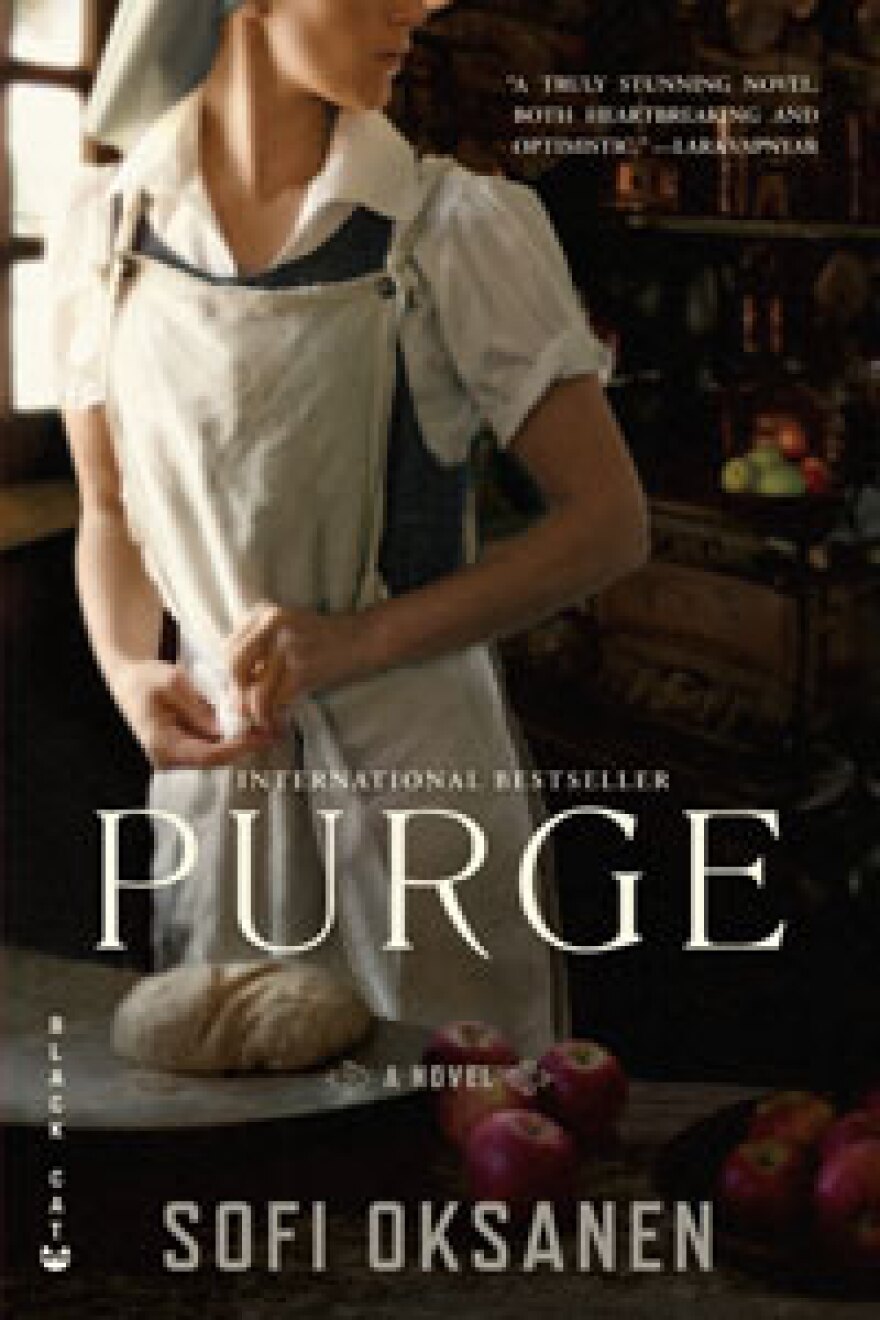In Koba the Dread, Martin Amis' concise history on Stalin's legacy of perversity, the British novelist makes the point that the enormity committed by the Soviets during (and before and just after) World War II somehow didn't get the deep traction in the consciousness of the West that the inhuman crimes of Nazi Germany did.
Sofi Oksanen's disturbing, riveting novel Purge partly operates in opposition to that fog of forgetfulness. Her book's story -- an escaped Russian sex slave turns up out of nowhere, collapsing in front of the dilapidated house of an elderly woman in Estonia -- is a jolt.
Set in 1992, only three years removed from the joyful optimism undammed by the demolition of the Berlin Wall, Purge burns through the mists to show how decades of debasement have twisted society in the former USSR into one characterized by crime and cruelty. Oksanen couches this larger theme within a tight, unconventional crime novel, one punctuated by dreadful silences, shameful revelations and repellent intimacies. By examining the toll of history on a close, personal level, Oksanen, an acclaimed Finnish playwright and novelist, makes the cost of mere survival (never mind the price of retaining one's dignity) sickeningly palpable.
Yet for all its darkness, Purge is an engrossing read. The novel's setup evokes both noir and fairy tales. Zara, a desperate, battered young woman, is from far away. She seeks refuge in a rickety home on the edge of the woods. Aliide, the cunning, solitary woman who takes her in, is skilled in the powers of herbs. Oksanen clues us in that, as in both noir and fairly tales, neither character is completely what she appears to be. As Aliide cares for Zara and Zara gets her bearings, we witness a psychic game of cards in which each woman carefully reveals a piece of her history, debating mightily with herself if presenting a sliver of truth will harm her cause or perhaps save her.
What's at stake for Zara is straightforward. She needs Aliide to help her get away from her captors, two Russian Mafiosi whose trade is beating and raping young women into forced prostitution in Germany. But what reason Aliide would have for risking the seemingly peaceful life she leads is teased out, taking the story back to Estonia in the '40s and '50s, and uncorking a past full of betrayal and pettiness, of living in hiding and speaking with your head bowed. Soviet-occupied Estonia is full of people abandoned to terrible violations and lasting humiliations; some of it at the hand of the government, some of it caused by human weakness.
The novel's plot early on presents a tangible reason for Zara's sudden appearance at Aliide's home. It's an occult, more meaningful connection shared between the two women, though, that Purge is taken up with exploring. And it's the awful basis for this bond between the women -- one that has warped Aliide's life for so long -- that will either push Aliide toward aiding Zara or toward washing her hands of her. The novel's conclusion is Aliide's reckoning, but it leaves one wondering what the final cost of the Soviet era will be for so many more.
Copyright 2023 NPR. To see more, visit https://www.npr.org.


